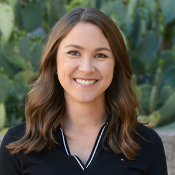Why women and LGBTQ+ students face greater challenges in college science classrooms
A new nationwide study conducted by researchers from Arizona State University, titled "Academic social comparison: a promising new target to reduce fear of negative evaluation in large-enrollment college science courses" and published in the International Journal of STEM Education, reveals critical insights into why women and LGBTQ+ college students experience heightened fear of judgment in science courses, which may contribute to their lack of participation and underrepresentation in science, technology, engineering and mathematics (STEM) fields.
The study found that in science, both women and LGBTQ+ undergraduates are more likely to think less of themselves compared with their peers who are men and their non-LGBTQ+ peers, which fuels their fear of being judged.
The study, led by Jynx Pigart, a third-year PhD candidate in biology and society at ASU and an NSF Graduate Research Fellow, along with Katelyn Cooper, assistant professor in the School of Life Sciences, and David MacKinnon, Foundation and Regents professor in the Department of Psychology, examined the classroom experiences of over 900 undergraduate students from 15 research-intensive institutions across the United States.
Key findings
This study showed that women and LGBTQ+ science undergraduates worry more about what their peers think of them. This worry can make it difficult for students to reason through science problems and even cause them to avoid participating, which likely results in more men and non-LGBTQ+ students contributing to class discussions.
"We wanted to better understand why women and LGBTQ+ students worry so much more than their counterparts about what their peers think about them in science," Pigart said. "We found that it’s partially because these groups think less of themselves when they compare (themselves) to their ... peers. Specifically, women and LGBTQ+ students reported that they did not feel as though they fit in among other students in their science major to a greater extent than men and non-LGBTQ+ students. Both groups also reported that they also perceived themselves as less academically talented than their peers."
The research supports the hypothesis that feelings of not fitting in and perceiving oneself as less academically capable than peers drive fears of negative evaluation.
Specifically, the study focused on the concept of women and LGBTQ+ students’ “academic social comparison — or the extent to how they view themselves in relation to other students when it comes to fitting in within their major and how they compare academically,” Cooper explained.
Previous studies have shown that women and LGBTQ+ students are more likely to leave STEM majors than men and non-LGBTQ+ undergraduates. The findings of this study highlight the importance of addressing classroom environments and social dynamics that contribute to this trend. By enhancing the sense of belonging and confidence among these students, educators can play a key role in reducing anxiety and improving retention in science disciplines.
"Improving students' sense of belonging and confidence in their academic abilities is crucial if we want to create more inclusive and supportive learning environments in science," Pigart said.
"Our research identifies academic social comparison — how students see themselves relative to their peers — as a promising target for interventions aimed at reducing fear of judgment."
Impact on society
Addressing the fear of negative evaluation among women and LGBTQ+ students is vital for promoting equitable participation in science and ensuring that diverse voices are represented in STEM fields. This work not only contributes to closing gaps in perceived intelligence and participation but also has the potential to positively influence retention rates among underrepresented groups in STEM.
The study represents an interdisciplinary collaboration between ASU’s School of Life Sciences and Department of Psychology, integrating expertise from biology education and quantitative psychology to address pressing social issues in STEM education.
More Science and technology

Breakthrough copper alloy achieves unprecedented high-temperature performance
A team of researchers from Arizona State University, the U.S. Army Research Laboratory, Lehigh University and Louisiana State University has developed a groundbreaking high-temperature copper alloy…

4 ASU researchers named senior members of the National Academy of Inventors
The National Academy of Inventors recently named four Arizona State University researchers as senior members to the prestigious organization.Professor Qiang Chen and associate professors Matthew…

Transforming Arizona’s highways for a smoother drive
Imagine you’re driving down a smooth stretch of road. Your tires have firm traction. There are no potholes you need to swerve to avoid. Your suspension feels responsive. You’re relaxed and focused on…



